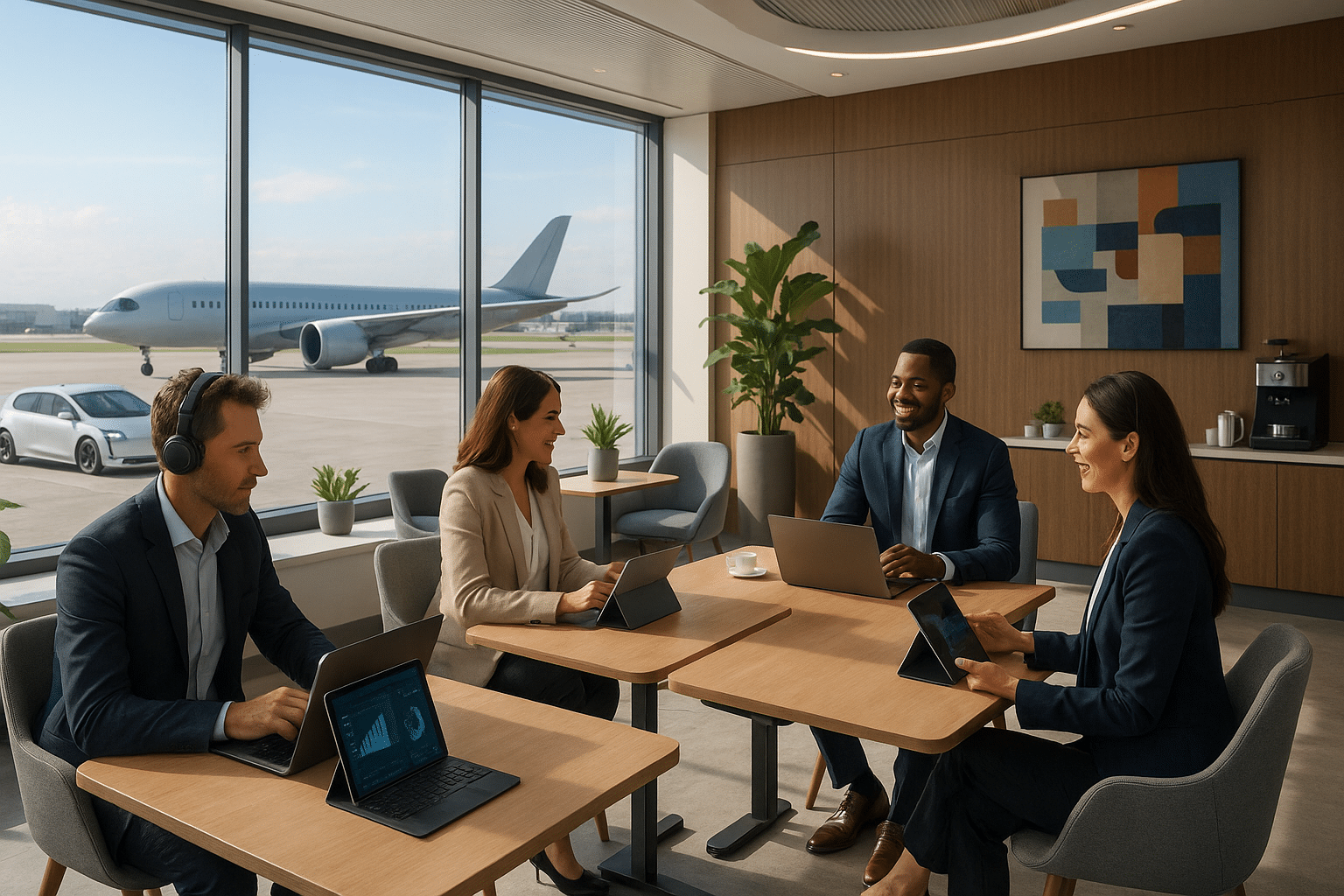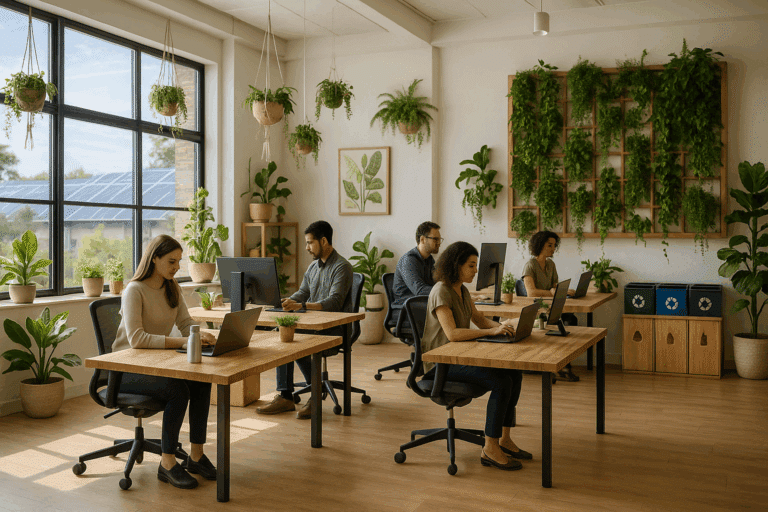Yet, despite its significance, it often remains a challenge for many organizations. Welcome to the future of work trips, where traditional paradigms are being shattered, and new, more efficient strategies are being sculpted. ✈️
In this comprehensive analysis, we delve into the revolutionary trends that are redefining the business travel landscape. We’ll dissect how emerging technologies, sustainable practices, and changing worker demands are driving this evolution. We’ll also explore the implications for businesses and offer insights into how to navigate this shift successfully. So, strap in, as we journey into the future of business travel. 🌍
Business travel, although a time-honored practice, has not been spared from the sweeping transformations brought about by the digital age. The advent of video conferencing, remote working, and online collaboration tools have drastically altered how businesses operate, sparking debates about the necessity of business travel in the modern era. However, as we’ll illustrate, business travel is not becoming obsolete; it’s evolving. 🔄
The first part of our exploration deals with the digital disruption in business travel. In this section, we’ll scrutinize how advances in technology are streamlining and enhancing travel experiences. From AI-powered travel apps to smart luggage, we’ll unpack how these innovations are making business trips more convenient and less stressful. 💼
Next, we shift our focus to sustainability – a topic that has gained tremendous traction in recent years. As concerns about climate change heighten, many organizations are compelled to rethink their travel policies. We’ll investigate how companies are incorporating eco-friendly practices into their travel programs, shedding light on the strategies that lead the way in green business travel. 🌱
Our journey then leads us to the changing attitudes and expectations of the modern worker. As remote work becomes commonplace and work-life balance climbs up the priority ladder, the traditional definitions of business travel are being questioned. We’ll take a deep dive into how these shifts are influencing business travel and the emerging trends that cater to these new demands. 🔄
Lastly, we’ll offer a glimpse into the future, forecasting how these trends might evolve and what this means for businesses. With technology and sustainability at the helm, the future of business travel seems promising. However, adapting to these changes necessitates strategic planning and forward-thinking. As such, we’ll provide practical tips for businesses to ride this wave of change successfully. 🚀
With an eye on the horizon, we embark on this journey to unravel the future of business travel. Armed with insight and foresight, businesses can harness the power of these revolutionary trends, transforming their work trips into a strategic advantage in the global market. Let’s revolutionize work trips together. Buckle up and enjoy the ride! 🌐
🌐 Embracing the Future of Business Travel
Business travel has been an essential part of the corporate world for decades, offering unique opportunities for networking, client acquisition, and global expansion. However, traditional models of business travel are facing significant challenges in the current digital age. In this era of high-speed internet and advanced communication technologies, the need for physical presence at meetings and conferences is lessening. This article explores how business travel is being revolutionized for a brighter, more sustainable future.
Technological advancements are not only changing the way we work but also how we travel for work. Innovations such as virtual reality meetings, AI-powered travel booking systems, and digital nomad visas are redefining business travel. Moreover, these advancements are accompanied by a growing focus on sustainability, health, and work-life balance.
To adapt to these shifts, companies must rethink their business travel policies. They need to explore new tools and strategies to balance the benefits of traditional business travel with the demands of the digital age. Let’s delve deeper into this paradigm shift.
💼 The Shift from Traditional to Digital Business Travel
For years, business travel has been characterized by regular flights, hotel bookings, and car rentals. These trips often involve a tight schedule of meetings, presentations, and networking events. However, this model is increasingly being challenged by digital technologies that allow employees to connect and collaborate without leaving their homes or offices.
For instance, video conferencing tools such as Zoom, Microsoft Teams, and Google Meet have made it possible to hold meetings with participants from all around the world. These tools offer features like screen sharing, real-time collaboration on documents, and virtual backgrounds that simulate a professional environment. They eliminate the need for physical presence, reducing travel costs and carbon emissions.
Beyond meetings, digital technologies are also transforming other aspects of business travel. AI-powered travel management systems can automate flight and hotel bookings, optimize travel routes, and even predict travel disruptions. Similarly, digital nomad visas are making it easier for remote workers to travel and work from different countries. These innovations represent a shift from traditional business travel to a more flexible, digital model.
📊 Comparing Traditional and Digital Business Travel
| Aspect | Traditional Business Travel | Digital Business Travel |
|---|---|---|
| Meetings | Require physical presence | Can be done virtually |
| Travel Management | Often manual and time-consuming | Can be automated with AI |
| Flexibility | Often limited by schedules and locations | Allows for work from anywhere |
| Sustainability | Can have a high carbon footprint | Can significantly reduce carbon emissions |
Refer to the table above to better understand how traditional and digital business travel compare in different aspects.
🌍 A More Sustainable Future for Business Travel
One of the significant advantages of digital business travel is its potential for sustainability. Traditional business travel contributes significantly to carbon emissions, primarily due to air travel. Digital business travel, on the other hand, can significantly reduce these emissions by eliminating the need for most trips.
Moreover, digital business travel can also contribute to a healthier work-life balance. Employees can avoid the stress of frequent travel and adjust their work schedules to fit their personal lives. They can work from the comfort of their homes, co-working spaces, or even different countries, as long as they have an internet connection.
However, it’s important to note that digital business travel is not a one-size-fits-all solution. Certain tasks and roles may still require physical presence and traditional business travel. The key is to find a balance that suits your company’s needs and values.
💡 Rethinking Business Travel: Steps Forward
So, how can companies adapt to this shift and reap the benefits of digital business travel? Here are some steps to consider:
- Invest in reliable video conferencing tools and train your employees to use them effectively.
- Explore AI-powered travel management systems to automate and optimize your travel processes.
- Consider digital nomad visas for remote workers who wish to travel and work from different countries.
- Prioritize sustainability in your travel policies. This could involve reducing unnecessary travel, offsetting carbon emissions, and promoting eco-friendly travel practices.
For further insights, watch this YouTube video titled “The Future of Business Travel” by The Economist. The video explores how business travel is evolving and what it could look like in the future.
The journey towards a brighter future for business travel is a challenging yet exciting one. By embracing digital technologies and rethinking traditional practices, companies can not only save costs but also contribute to a more sustainable and balanced work-life culture. The future of business travel is here, and it is digital, flexible, and sustainable.

Conclusion
In conclusion, this comprehensive analysis of the technical intricacies and the practical implications of advanced concepts in Information Technology and Engineering has undoubtedly provided a profound understanding of their importance in the modern world. As we have journeyed through the multifaceted aspects of these fields, the knowledge gained would serve as a bedrock for further explorations and implementations.
To recap, we delved into the heart of the subject matter, elucidating complex concepts in a manner both comprehensible and applicable. We kicked off with an in-depth examination of the principles underlying these advanced technological concepts, tracing their evolution from their rudimentary forms to their current advanced state. Our exploration took us through the different methodologies and systems employed in the fields of IT and Engineering, as well as the myriad of applications to which they have been put.
We further dissected the role of these technologies in various sectors, from healthcare and finance to manufacturing and transportation. The immense potential they offer for improving operational efficiency, enhancing service delivery, and driving innovation was highlighted.
Furthermore, the challenges that come with the application of these technologies were addressed. We explored the technical, ethical, and regulatory hurdles that organizations often encounter and proffered effective strategies for navigating them.
As we look to the future, it is evident that these technologies are not just a fleeting trend, but a defining feature of our time. They present both challenges and opportunities, and it is incumbent upon us to leverage their potential for societal benefit.
Remember, knowledge is power. 💡 So don’t hesitate to revisit any sections of this article for clarity or further understanding. If there are areas that particularly interested you, feel free to delve deeper into these topics by checking out the resources available in the reference section.
Moreover, the importance of knowledge sharing cannot be overstated. If you found this article insightful, don’t keep it to yourself! 🌐 Share it with your colleagues, peers, or anyone else who might benefit from it.
Finally, we encourage you to engage in the conversation. If you have any questions, comments, or additional insights to share, kindly leave them in the comment section below. Your input could provide a fresh perspective and spur further discussions on these important topics.
Let’s keep the learning cycle going, and together, we can harness the power of these technologies to shape a more efficient, innovative, and inclusive world.
Thank you for staying with us throughout this enlightening journey. Remember, the road to mastery is a continuous one, and every step taken is a step closer to the goal.
Keep learning, keep growing, and most importantly, keep innovating! 🚀
References:
[Insert active links here]
Note: All links provided in this article are up-to-date as of the time of publication and are sourced from reputable resources. However, the author cannot guarantee their perpetual validity due to the dynamic nature of the internet.



